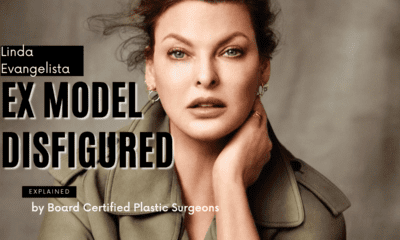Reviews are a part of culture these days. Few customers buy anything without first consulting a review or two. In fact, for the younger generation, reviews are an integral component of their decision-making process. In the world of plastic surgery, however, the problem with reviews is that they are not always true.
In a recent story out of Australia, a patient was sued by his plastic surgeon for posting a false negative review. The court sided with the surgeon and the patient had to pay-up to the tune of $500,000. Dr. William P. Adams Jr. of Dallas, TX and his esteemed colleagues, Dr. Jason Pozner of Boca Raton, Dr. Peter Fodor of Los Angeles, and Dr. Bill Kortesis of Charlotte discuss reviews, how they impact plastic surgery and what a patient needs to look for when it comes to surgeon reviews.
It’s a Love/Hate Relationship with Reviews
“We all have a love/hate relationship with reviews,” begins Dr. Pozner. “We like reviews when they are to our benefit.” They are helpful when a person is on Amazon and trying to decide between two different things and at the bottom of the page exist questions and answers ready to be read. It is superior, after all, to know if what you are planning to buy is crap or not. On the other hand, with reviews in plastic surgery, most patients who are satisfied, “don’t have the time and energy to post a positive review,” continues Pozner.
It thus can paint a biased picture that is more in favor of the negative reviews. Furthermore, many reviews don’t have the appropriate context. Let’s say the surgeon was an hour late seeing a patient. The patient is angry and posts a cruddy, 1 star review. However, that patient neglects to mention that the surgeon was late because things ran over in the operating room. Now this bad review is out there, but it had nothing to do with the surgeon’s skill. In fact, the surgeon may have been late because of an unforeseen complication, and the extra time they took, matched with their skill, saved the day!
Accountability is Important with Reviews
Dr. Pozner is pleased with the outcome of this case in Australia. He feels that there needs to be more accountability or recourse with reviews. The patient in this story posted a blatantly false review saying that the surgeon did not perform the surgery that he said he did. The review negatively impacted that surgeon’s revenue, so he sued. He won. The patient had to pay a half a million dollars for the “simple act” of posting a maliciously false review.
For Dr. Fodor, the review process has changed tremendously over the long course of his practice. When he first started, social media didn’t exist. “And now, it’s a bit of a double edged sword,” he comments. Some people are very smart and use social media to their benefit, but there are lots of stories where practices are negatively impacted by unjustified reviews. “It hasn’t happened to me yet, but that is just a matter of luck, ” he shares. Like Dr. Pozner, he finds it refreshing to see some accountability.
Social Media & Plastic Surgery
Dr. Kortesis is a big fan of social media. He believes, “it holds doctors to a certain standard.” He thinks that it’s good for patients to have an outlet and a means for expressing their opinion. “But I agree that there is a negative aspect.” The downside of the system right now is that there is no validation process as to whether “or not we actually saw the patient or did the procedures,” Kortesis continues. This is the weak link that needs to change in order to make the review process a more fair and accurate representation of both the surgeon as well as his or her practice. Dr. Kortesis uses social media routinely and it has become a great avenue for him and his practice to connect with patients. It’s what the younger population is using exclusively to analyze doctors, so it’s here to stay. For him, that’s good thing.
Dr. Pozner disagrees. He’d rather have the double secret practice where you need the double secret password to get through the door. Reviews become tiresome! You don’t leave a good review for a restaurant where you had a good meal. You simply enjoy the meal. But if someone sees a roach, it’ll blow up online. The system is skewed toward negativity.
Dr. Kortesis disagrees. He thinks that reviews for restaurants are completely different that reviews for doctors. “We know now that word of mouth is how we get a majority of our patients”. And social media is just a new form of word-of-mouth. One that has a much larger audience.
What to Look for with Reviews
Social media may bring patients in the door, but this does not necessarily mean that the surgeon is a better doctor just because he or she has a large social media following. Furthermore, the thought among most of Dr. Fodor’s younger colleagues when it comes to social media is, “‘I hate to do it but I have to do it’,” he shares. Given that the system is inherently flawed with its lack of validation process, and the fact that popularity doesn’t translate to skill, what should a patient look for in terms of plastic surgery reviews?
A huge red flag for Dr. Adams is if every review on a surgeon’s site is positive. Even the world’s best surgeon is going to have 1 or 2 patients who weren’t thrilled for whatever reason; this does not mean that the surgeon is a bad doctor. “There are only two types of surgeons who don’t have complications: those who don’t do surgery and those who lie,” explains Dr. Pozner. His problem with social media is that the 1 or 2 patients who aren’t happy have too large of a voice. Surgeons need to work on getting their happier patients to post. It’s just frustrating.
Plastic Surgeons Need to Ask for Nice Reviews
Dr. Kortesis has no problem asking his happy patients to write a nice review. He does it in a relaxed, funny way, but by making it a standard component of his after-care, it has allowed his reviews to more thoroughly reflect his actual patient care. Plastic surgeons need to stop being afraid of social media because it is here to stay, or at least for the short term. Surgeons need to embrace it while also figuring out how to make it work comfortably and ethically for their practices.





















Facebook
Twitter
Instagram
YouTube
RSS